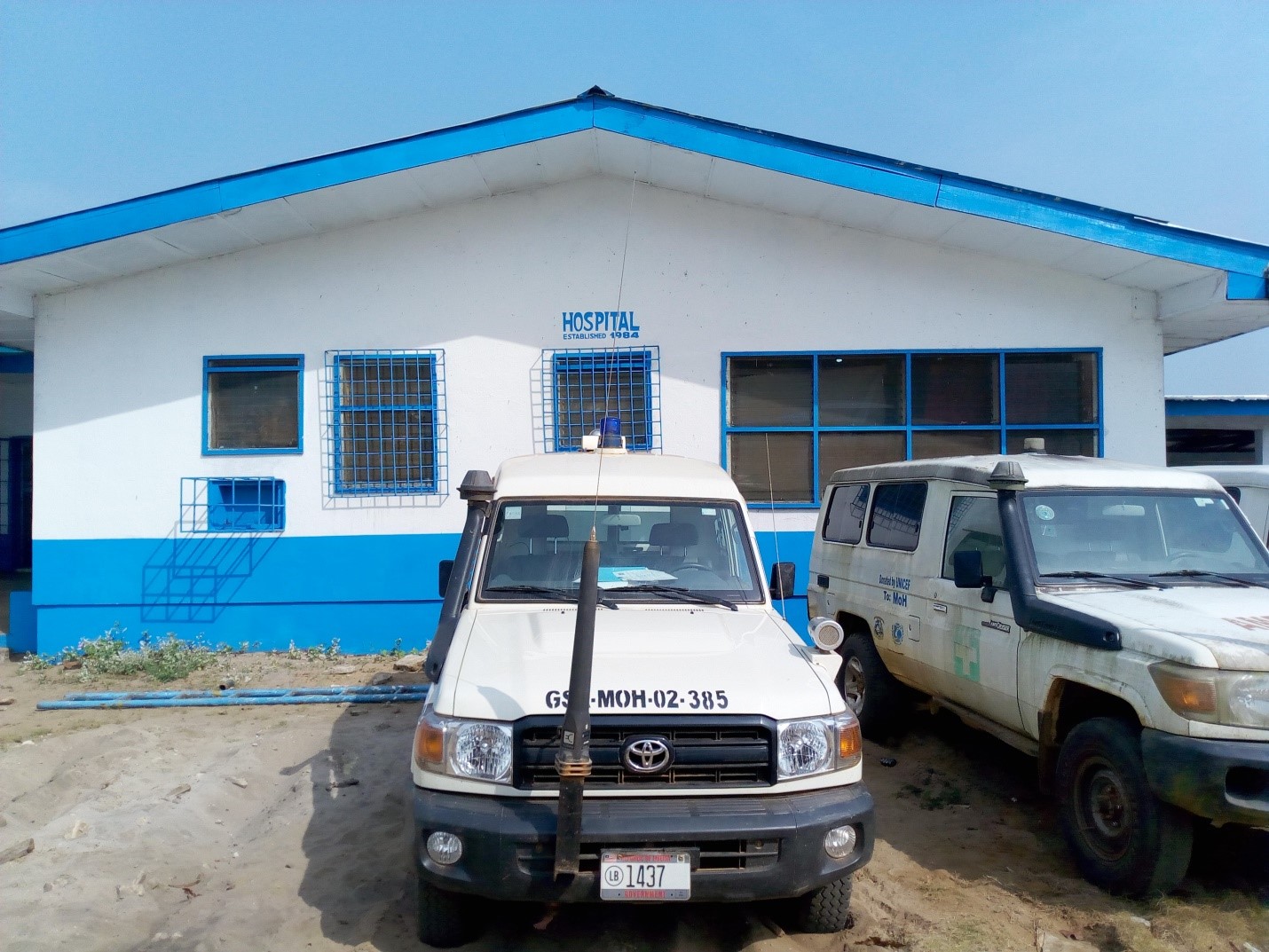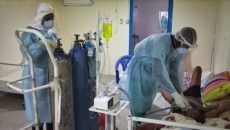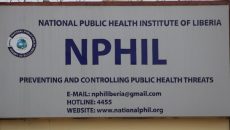GOSHEN COMMUNITY, Margibi – Pregnant women living in Margibi and rural Montserrado are staying away from health facilities in significant numbers during the COVID-19 pandemic, according to accounts from officials at health facilities in these areas.
According to the World Health Organization, prenatal visits are essential in preventing maternal and child deaths. However, given the current Coronavirus pandemic, pregnant women in Montserrado and Margibi appear to fear seeking health care due to an increasing number of confirmed cases.
Some pregnant women who spoke to The Bush Chicken expressed fears that nurses who might attend to them might have come in contact with Coronavirus patients or might have the virus themselves.
Emma Whapoe, a pregnant woman and resident of Goshen Community in Margibi’s first district, says going for her regular antenatal care visits is a challenge because there were rumors of confirmed cases of the virus at the health facility she regularly visits.
“Hearing about this sickness, I can be worried when I’m going there to seek my treatment,” Whapoe said. “Those that I will get in contact with, like the nurses, because I don’t know who they have interact[ed] with.” Whapoe said she now visits another nearby clinic.
Like Whapoe, Irene Dahn is another pregnant woman who worries because she does not know whether the nurses who might attend to her at the health facility have the Coronavirus, which does not always present symptoms.
“I got that thinking that who I’m going to interact with or who are the nurses that I am going to meet,” Dahn said. “I am scared because you don’t see COVID-19, so when I’ going I can be thinking.”
The risk of passing the infection to a fetus appears to be very low. Currently, there is no evidence of any effects due to maternal infection with COVID-19. KMTV reported on a COVID-19 patient who was pregnant and delivered to a healthy baby after testing negative.
The concern from pregnant women about health workers being COVID-19 positive is well-placed – the May 14 situation report from the National Public Health Institute of Liberia showed that 42 of the 219 confirmed cases so far were of health workers. Those figures mean that over 19 percent of confirmed cases have been of health workers.
At the public health care center in Mount Barclay in rural Montserrado, health care providers disclosed that before the outbreak, there were 20 to 25 deliveries a month. For March and April combined, the facility did not record 10 deliveries.
“More pregnant women are coming for the [antenatal care] visit at the clinic in Mount Barclay, but what we noticed is that time for delivery, they go home and give birth there,” said Musu Boakai, the registrar at the clinic. “Because they say when they come here, we’ll diagnose them of COVID-19.”
At the privately owned Confidence Medical and Laboratory Clinic in Bernard’s Farm, William Puyengay, a nurse stationed there, is convinced that expecting mothers now prefer going to pharmacies to purchase their medications instead of going to regular health facilities for antenatal care.
He told The Bush Chicken that the clinic previously served around 75 persons every day, with a significant amount of them being pregnant women. Since COVID-19, however, he says the clinic now sees 15 to 20 patients a day, with 6 pregnant women showing up among that figure.
Meanwhile, at the SLEMP Medical Clinic in Mount Barclay, Frances Kpoleh says the number of women coming in for antenatal visits has increased from an average of 10 in March to 17 in April. The Coronavirus had already hit Liberia by mid-March, but Kpoleh, the officer in charge at the clinic, thinks more women are visiting the privately-owned clinic because they mistrust the government health facilities, which they fear could diagnose them with COVID-19. Kpoleh said many people believe that government health facilities are faking COVID-19 results to help the government get funding from donors.
The health minister, Dr. Wilhelmina Jallah, had anticipated that the pandemic could contribute to reduced access to basic health care services. During an April 13 press conference, she asked public and private health facilities to continue providing basic services to patients, even specifically mentioning pregnant women. Her statement came out of the realization that major health crisis of this sort can paralyze entire health systems and impede access to basic health services.
During the 2014-2016 Ebola epidemic, many could not access basic health services, as the health sector focused almost exclusively on Ebola patients and patients feared contracting the virus at health facilities. A study conducted in 2015 by the U.S. National Institutes of Health found that in urban areas in Liberia, only 20-30 percent of patients seeking care during the Ebola epidemic received it. The study found that patients seeking prenatal and obstetric care and emergency services had the most difficulty.
According to a Harvard Medical School publication, there is no evidence that COVID-19 affects pregnant women any worse than others in that age group. Additionally, there has been no documented increase in miscarriages or other complications related to COVID-19.
Featured photo by Rita Jlogbe



